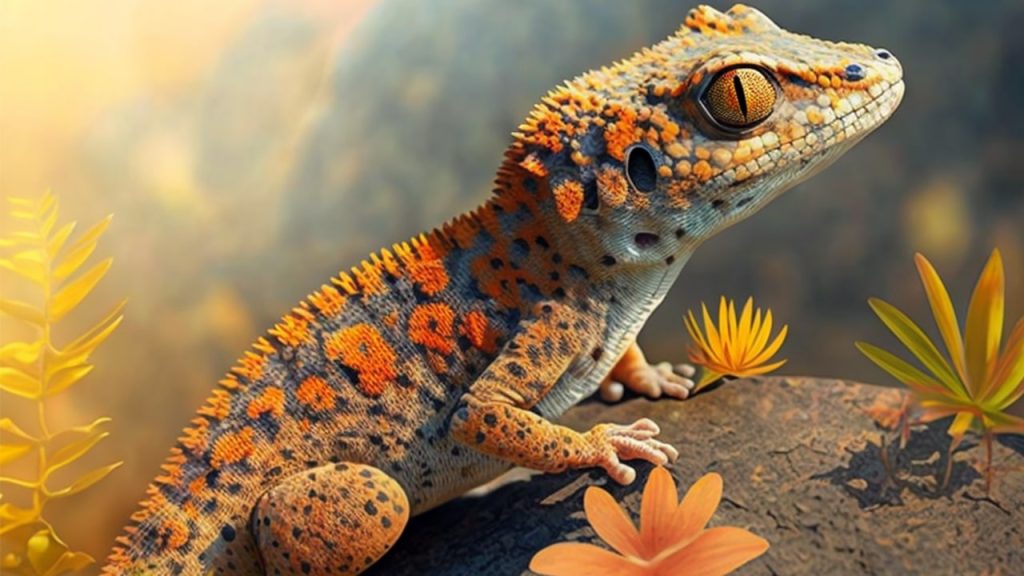Geckos are fascinating and unique creatures that make for great pets. However, as with any pet, taking care of a gecko requires some knowledge and effort on your part. From creating the right habitat to ensuring proper nutrition, there are many things to consider when it comes to caring for your gecko. In this article, we will share some expert tips on how to help your gecko thrive.
Habitat Setup:
Creating the right habitat is crucial for your gecko’s well-being. Here are some tips to keep in mind when setting up your gecko’s home:
- Size: Make sure the enclosure is large enough for your gecko to move around and explore. A good rule of thumb is to have at least 10 gallons of space for every gecko.
- Substrate: Use a substrate that is safe and easy to clean, such as reptile carpet or paper towels.
- Temperature: Geckos need a warm environment to thrive, so make sure to provide a heat source, such as an under-tank heating pad or ceramic heat emitter. The temperature should be around 85°F during the day and 75°F at night.
- Lighting: Geckos are nocturnal, so they don’t need UVB lighting. However, they still need a light source to regulate their day/night cycle. Use a low-wattage bulb or red light at night.
Diet:
Feeding your gecko a balanced diet is essential for their health. Here are some tips to keep in mind when it comes to feeding your gecko:
- Insects: Geckos are insectivores and require live insects as their main food source. Crickets, mealworms, and roaches are all good options.
- Gut-loading: Before feeding insects to your gecko, make sure to gut-load them with nutritious foods, such as fruits and vegetables. This will provide your gecko with additional nutrients.
- Dusting: You should also dust the insects with calcium and vitamin supplements before feeding them to your gecko.
- Water: Always provide your gecko with fresh, clean water in a shallow dish.
Health and Wellness:
Keeping your gecko healthy requires more than just the right habitat and diet. Here are some additional tips to keep in mind:
- Hygiene: Clean the enclosure regularly to prevent bacteria buildup. Remove any uneaten insects, feces, and shed skin.
- Handling: Geckos can be fragile, so handle them gently and with care. Avoid picking them up by the tail, as it can detach easily and cause injury.
- Monitoring: Keep an eye on your gecko’s behavior and appearance. If you notice any signs of illness, such as loss of appetite or lethargy, take them to a vet immediately.

FAQs:
Q: What is the best type of enclosure for a gecko?
A: A glass or plastic enclosure with a secure lid is best for geckos.
Q: How often should I feed my gecko?
A: Young geckos should be fed daily, while adult geckos can be fed every other day.
Q: Can I feed my gecko fruits and vegetables?
A: While geckos are primarily insectivores, you can offer small amounts of fruits and vegetables as treats.
Conclusion:
Caring for a gecko requires some effort, but with the right knowledge and care tips, you can help your gecko thrive. Remember to create the right habitat, provide a balanced diet, and keep an eye on.


